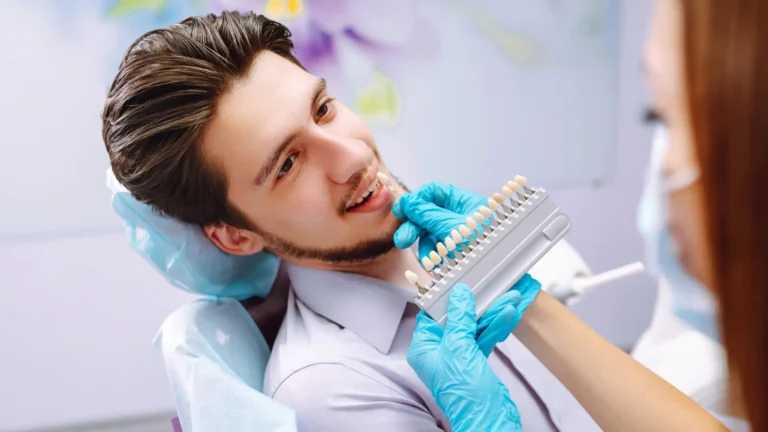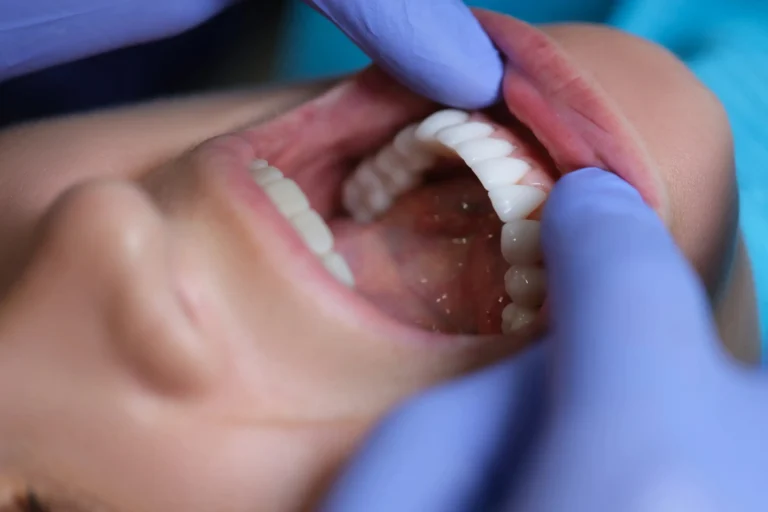Every parent wants the best for their child, and a healthy smile is often high on the priority list. It’s never easy being a parent, and setting your child up for a bright and healthy future is an ongoing challenge you’ll have to think about for many years to come.
As a new parent, you might have many questions, such as, “At what point should I first take my child to the dentist?” “When should my child start brushing their teeth?” or “Is fluoride toothpaste healthy for my child?”
We’ve created this brief guide to help you navigate your journey through caring for your child’s teeth.
Start Going to the Dentist Early
Although your child may not start visibly developing teeth for the first few months of their life, their smile is evolving. You should either book the first dental appointment for your child when their first tooth appears or no later than their first birthday.
There are two reasons why early dental appointments are so necessary. At this stage, your child is growing very quickly, but maintaining good hygiene is also challenging. Initial checkups ensure new teeth are healthy.
The other reason is that bringing your child to see us often and from a young age gets them used to dental appointments. Your child will be more likely to grow up feeling comfortable visiting the dentist and may have better oral health as a result.
Set Your Child Up for a Lifetime of Good Habits
The fight against plaque bacteria starts at birth. Although your child may not have teeth yet, you need to keep their gums clean. This prevents bacteria from harming their gums or causing tooth decay as teeth emerge.
Milk on your child’s gums will attract bacteria. From birth, you should wipe your child’s gums with a clean cloth twice a day.
When teeth emerge, you should brush them with a small, soft toothbrush. For the first three years, use a grain-sized smear of toothpaste. Repeat this every morning and evening.
As your child grows, encourage them to brush their teeth themselves. You should supervise them to ensure they do it thoroughly. Set a timer so your child knows how long to brush for,
Increase the amount of toothpaste used to the size of a pea from three to six years of age.
Replace Your Child’s Toothbrush Often
As the bristles wear down, your child’s toothbrush will become less effective. You should replace your child’s toothbrush at least every three months or sooner if it’s already worn.
Remember to choose toothbrushes that are suited to your child’s age.
Fluoride Is Your Friend
Many different types of toothpaste are available today, each boasting different benefits. Although the taste and look of the toothpaste can make brushing more appealing to your child, the fluoride content is the most important thing to pay attention to.
You may read conflicting information about fluoride. However, it is vital for healthy teeth. This natural mineral helps strengthen enamel and protect your child’s smile from tooth decay.
For the first few years of life, use toothpaste with 1000 ppm (parts per million) of fluoride. At age six, this should increase to 1,350-1,500 ppm fluoride.
Pay Attention to Your Child’s Diet
Bacteria love sugar and starch. Too much sugar puts your child at risk of developing tooth decay and gum disease. To limit acid erosion and the need for fillings, keep an eye on the sugar content of your child’s food and drinks.
Sugar is, of course, unavoidable. It’s naturally found in fruits and vegetables and in many of the products you probably regularly buy. Awareness of your child’s sugar consumption, encouraging them to drink water, and brushing their teeth are all ways to minimise its impact on their dental health.
Understand the Importance of Orthodontic Assessments
As your child’s smile grows, you may notice that their teeth are not straight. This can happen for various reasons. Sometimes it’s genetics, and occasionally it’s because they sucked a dummy or their thumb for too long.
Misaligned smiles can lead to complications, such as an increased risk of cavities, speech problems, and jaw discomfort. It’s worth bringing your child for an orthodontic assessment from seven. This helps us identify whether early treatment will benefit their health in the long term.
Children’s Dental Care at Quest
Good oral health starts at birth. At Quest Dental Care, we’re here to support your entire family on a journey that lasts for life. Together, we can ensure your child’s smile is healthy, and they feel good about visiting us.
Contact us today to book your child’s dental appointment.



